#sharethehistory
Text
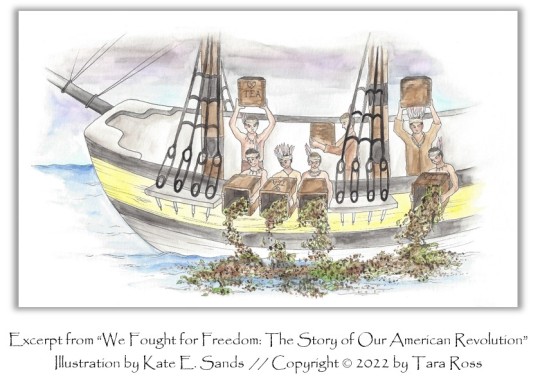
TDIH: Greenwich Tea Party
On this day in 1774, New Jersey colonists set fire to a shipment of tea. Their action came about one year after a group of Boston colonists famously threw tea into their own harbor.
The Boston Tea Party wasn’t the only protest against the Tea Act of 1773, you see.
As “No taxation without representation” became a rallying cry in the American colonies, Philadelphia forced a ship carrying tea to turn back. Likewise, Annapolis ensured that a ship carrying tea would be lit afire. Places like New York and Charleston revolted in their own ways, too.
Colonists in Greenwich, New Jersey, soon joined the protest. Their “Tea Party” (really a tea burning) would be the last of these types of protests before the opening shots of the American Revolution.
The story continues here: https://www.taraross.com/post/tdih-greenwich-tea-party
#tdih#otd#this day in history#history#history blog#America#american history#american revolution#founders#sharethehistory
147 notes
·
View notes
Photo

🇺🇸 During this week in 1944, American soldiers were fighting one last German push during the Battle of the Bulge. One of these, Pfc. Melvin Biddle, was a normally soft-spoken man. He later even admitted to being scared during combat. “But I lost a lot of fear because I was out there and couldn’t let the troops down,” he said. On December 23, he was fighting near Hotton, Belgium. Our soldiers were trying to rescue another company that had been surrounded. Biddle was lead scout. You’d never know that Biddle was soft-spoken—or scared—in the hours that followed. He “aggressively penetrated a densely wooded area” and advanced within yards of at least five enemy positions. He threw hand grenades into machine gun nests, & he took out German snipers. Biddle described one of these encounters. “There’s underbrush and #cold, #snowy,” Biddle said. “I came up—this small German outpost with the three guys....I shot the first one and then the second one tried to shoot me and I had to shoot him. The third one ran from me and I shot him in the shoulder and he kept going….And then all hell broke loose.” Biddle wasn’t done yet. He scouted enemy positions—alone—for hours. He was freezing & his hands were so cold, he later said, “I wasn't sure I would be able to fire my rifle.” But the young private returned with critical intelligence. The next morning, Christmas Eve, he was dispatched as lead scout again. Would you believe that Biddle was uninjured after two days of fighting? “I’m not a hero, not at all,” he said in 1999. His country begged to differ. “We call them the Greatest Generation for a reason,” the #Indiana Governor said when Biddle passed away in 2010, “and in Melvin Biddle we have just lost one of the greatest of the great. Every #Hoosier is proud that our state produced such a man.” FULL STORY: TaraRoss.com #TDIH #history #WWII #MedalMonday #sharethehistory Posted @withrepost • @taraross1787 https://www.instagram.com/p/CoFoncOOylQ/?igshid=NGJjMDIxMWI=
0 notes
Text

During this week in 1786, frontiersman Davy Crockett is born. Crockett is known for his escapades as a hunter, scout, and storyteller. He was a legend, of course, with plays and books written about his adventures even during his own lifetime.
“I’m that same David Crockett,” he once said of himself, “fresh from the backwoods, half-horse, half-alligator, a little touched with the snapping-turtle; can wade the Mississippi, leap the Ohio, ride upon a streak of lightning, and slip without a scratch down a honey locust; can whip my weight in wildcats . . . .”
Would he have lived longer if he and Andrew Jackson had not been at odds with each other? Crockett scouted for Jackson during the Creek War, but he did not share Jackson’s ruthless style. Tension between the two came to a head after Crockett was persuaded to run for pol itical office.
Crockett later remembered that his first opponent didn’t think “he was in any danger from an ignorant back-woods bear hunter.” But Crockett could entertain a crowd, and he sometimes wrapped up a stump speech by inviting the crowd to join him for a drink—leaving his opponent behind without an audience.
Obviously, he won.
Crockett was serving in Co ngress when Jackson was elected Pres ident. The two clashed, perhaps most notably over the Indian Removal Act. Crockett voted against the measure, calling it “a good honest vote, and one that I believe will not make me ashamed in the day of judgment.”
But Jackson was getting tired of the popular frontiersman who too often opposed him, and he personally recruited someone to challenge Crockett in 1831. The camp aigns that followed were messy. Crockett lost in 1831, won in 1833, then lost again in 1835.
You’ve likely heard how Crockett responded? “Since you have chosen to elect a man with a timber toe to succeed me,” he stormed, “you may all go to hell, and I will go to Texas.”
Many have speculated about his reasons for going to Texas. He was then separated from his wife and deep in debt. He was interested in good land and a chance to start over. He wasn’t trying to join the fight for Texas independence—at least not at first.
Perhaps the adventurous frontiersman couldn’t help himself once he arrived? By January 1836, he’d joined a volunteer corps, and he'd signed an oath to support Texas.
“I must say as to what I have seen of Texas it is the garden spot of the world,” he wrote his family, “the best land and the best prospect for health I have ever saw . . . . I am rejoiced in my fate.”
Did Crockett’s old animosity for Jackson seal his fate at this juncture? Or was he just itching for a fight? Crockett joined Colonel William B. Travis at the Alamo during those weeks, even though Sam Houston, a Jackson supp orter, wanted the Alamo destroyed.
Travis and Crockett would stay and fight. They would be among those kil led at the Alamo on March 6, 1836.
The horrific treatment of Alamo defenders gave Texans a new rallying cry: “Remember the Alamo!”—and it solidified Davy Crockett’s reputation as one of the most memorable frontiersmen of his day.
---------------------------
If you enjoy these history posts, please see my note below. :)
Gentle reminder: History posts are copyright © 2013-2022 by Tara Ross. I appreciate it when you use the shar e feature instead of cutting/pasting.
#TDIH #OTD #History #USHistory #liberty #freedom #ShareTheHistory
Permalink: https://www.taraross.com/post/tdih-davy-crockett
3 notes
·
View notes
Text
Tara Ross - This Day in History - The Pilgrims enjoy a three-day Thanksgiving feast:
TDIH #OTD #History #USHistory #Liberty #Freedom #ShareTheHistory #Pilgrims #TurkeyDay #HappyThanksgiving #Thanksgiving #Thanksgiving2022
0 notes
Text
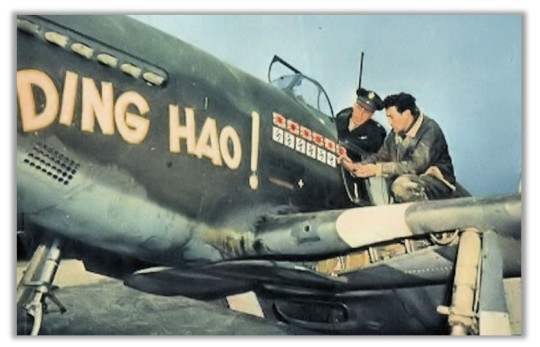
Medal of Honor Monday: James Howard
On this day in 1913, a hero is born. James H. Howard would go on to become an American fighter pilot during World War II. He is perhaps best known for the day on which he singlehandedly took on 30 German fighter planes.
“For sheer determination and guts, it was the greatest exhibition I’ve ever seen,” one witness concluded. “It was a case of one lone American against what seemed to be the entire Luftwaffe. He was all over the wing, across and around it. They can’t give that boy a big enough award.”
Maybe not, but then-Major Howard would receive the Medal of Honor for his daring feat anyway.
The story continues here: https://www.taraross.com/post/tdih-james-howard-moh
#tdih#otd#this day in history#history#history blog#America#medal of honor monday#medal of honor#sharethehistory
59 notes
·
View notes
Text

This Week in History: Bennie Adkins's Medal of Honor
At about this time in 1966, a Green Beret engages in a multi-day battle in Vietnam. The Army estimates that Bennie Adkins took out anywhere from 135 to 175 enemy forces during the course of the conflict.
You never would have known that Adkins himself had sustained multiple injuries. He just kept going! And he refused to leave until every other soldier had been evacuated.
Adkins was drafted into the Army, but he volunteered to serve in the Special Forces. “I wanted to be the best that I could possibly be,” he explained.
He would more than live up to that statement during the Battle of A Shau, a conflict that began when the Vietnamese attacked an American camp on March 9, 1966.
The story continues here: https://www.taraross.com/post/tdih-bennie-adkins-moh
69 notes
·
View notes
Text

This Day in History: First untethered spacewalk
On this day in 2017, a pioneer passes away. Bruce McCandless II is best known as the NASA astronaut who made the first untethered spacewalk.
No one had ever done such a thing before. Usually, a long cable keeps astronauts safely bound to their spacecraft. But on February 7, 1984, Captain McCandless would leave the Space Shuttle Challenger and float freely in space, relying only on a propulsion system strapped to his back.
McCandless had been in Mission Control when Neil Armstrong accomplished a similar feat on the moon’s surface. Now, nearly 15 years later, it was his turn.
“It may have been one small step for Neil,” McCandless joked as he left the Space Shuttle that day. “But it’s a heckuva big leap for me.”
The story continues here: https://www.taraross.com/post/tdih-challenger-spacewalk
#tdih#otd#this day in history#history#history blog#America#nasa#space#aviation history#sharethehistory
120 notes
·
View notes
Photo
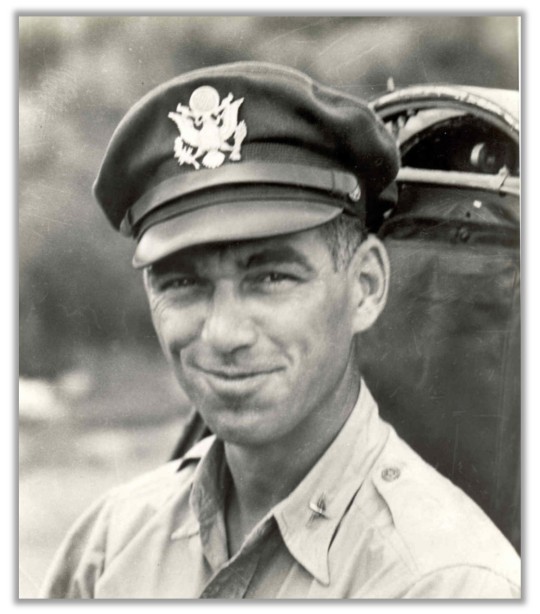
Medal of Honor Monday: Neel Kearby
At about this time in 1911, a hero is born. Neel E. Kearby would go on to become one of the most decorated pilots in World War II. He achieved 22 kills during his time in combat, the most of any Thunderbolt pilot in the Pacific.
He received the Medal of Honor during the war, but he was known for so much more: Kearby turned the P-47 Thunderbolt into a weapon of war that the Japanese could not ignore.
“Since the P-47 could not maneuver with the enemy at low altitude,” the National Museum of the United States Air Force explains, “Kearby would lead his group into hostile territory at high altitude where the Thunderbolt’s turbosupercharged engine gave it an advantage. Upon sighting the enemy below, Kearby and his pilots made high-speed attacks exploiting the P-47s remarkable diving ability. The energy built up in the dive allowed them to quickly climb back up to altitude for another diving pass.”
The story continues here: https://www.taraross.com/post/tdih-neel-kearby-moh
#this week in history#history#history blog#medal of honor monday#medal of honor#us air force#world war ii#wwii#sharethehistory
216 notes
·
View notes
Text
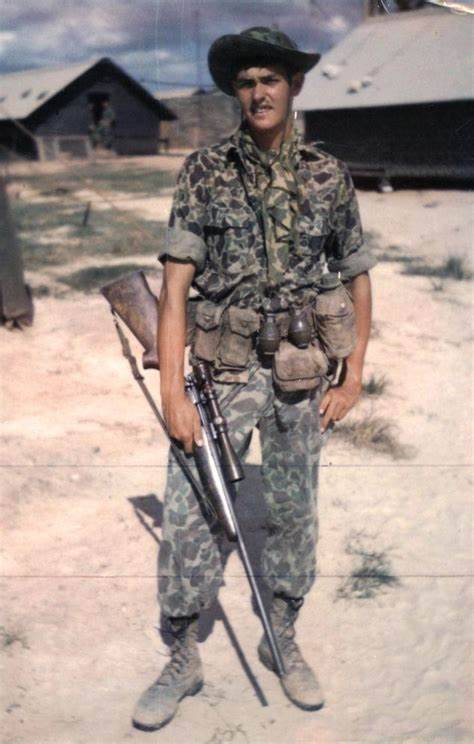
This Day in History: Chuck Mawhinney, Legendary Marine
On this day in 1949, Charles “Chuck” Mawhinney is born. He is best known for his service in the United States Marine Corps during the Vietnam War.
Mawhinney has been called the “Corps’ deadliest sniper.”
“My father was a Marine during World War II,” he later explained. “I started shooting at a very young age, and he taught me to shoot like the Marines taught him, so there wasn’t any big transition from hunting in Oregon to becoming a sniper.”
The story continues here: https://www.taraross.com/post/tdih-chuck-mawhinney
65 notes
·
View notes
Text
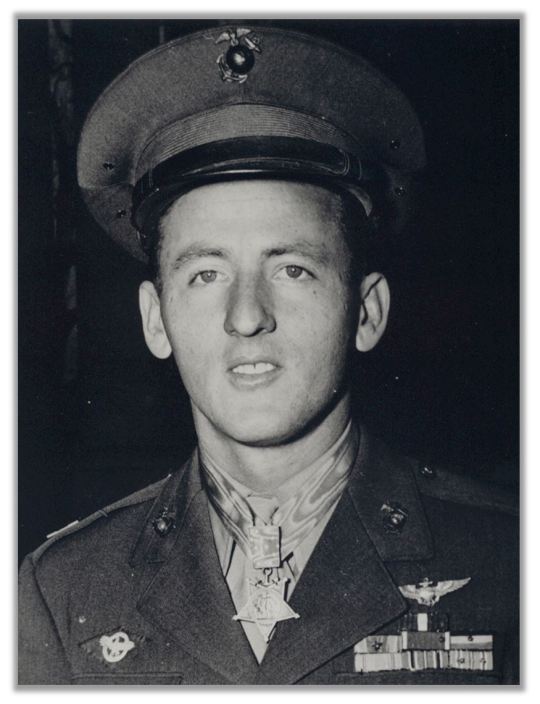
Medal of Honor Monday: Jefferson DeBlanc
At about this time in 1921, a hero is born. Jefferson DeBlanc was just a young boy when he discovered a love for aviation. An airplane had made an emergency landing in a pasture close to his home in Louisiana, and the stranded pilot let Jefferson climb into the cockpit of his plane.
Naturally, DeBlanc was hooked. Of course, no one could know what was coming: DeBlanc would not only learn to fly, but he would also go on to become a hero in the skies of the Pacific!
Then-First Lt. DeBlanc’s heroism came on January 31, 1943, as he led a group of fighter planes on a mission near Kolombangara in the Solomon Islands. Eight fighters from Marine Fighting Squadron 112 were to escort dive bombers and torpedo planes towards their Japanese targets.
The story continues here: https://www.taraross.com/post/tdih-jefferson-deblanc
#this week in history#medal of honor#medal of honor monday#history#aviation#world war ii#wwii#sharethehistory
65 notes
·
View notes
Text

Medal of Honor Monday: Wesley L. Fox
At about this time in 1931, a hero is born. Wesley L. Fox would go on to lead a company of men through the so-called “Valley of Death” in Vietnam, even after other platoon leaders had been killed or wounded.
In many ways, Fox was an unlikely hero. He’d always meant to be a farmer. He’d grown up on a farm and enjoyed it. “If it had not been for the Korean War, I probably would not have gotten away from farming,” he later concluded. Nevertheless, that war started, and it prompted Fox to join the Marines. He thought he would stay for a few years, then retire.
Except that’s not what happened. In the end, Fox spent 43 years in the Marines.
The story continues here: https://www.taraross.com/post/tdih-wesley-fox-moh
#medal of honor monday#medal of honor#this week in history#history#history blog#vietnam#us marines#sharethehistory
78 notes
·
View notes
Text

This Day in History: Paul Revere's Ride
On this day in 1775, Paul Revere makes his famous ride. I am so sorry to tell you that he did not really yell “the British are coming!” as he rode. But he did accomplish one important goal: He warned Samuel Adams and John Hancock that British soldiers were coming to arrest them.
He’d intended to continue on to Concord, warning those townspeople about British movements so weapons and stores could be secured. Unfortunately, his ride was interrupted.
The story continues here: https://www.taraross.com/post/tdih-paul-revere-ride
25 notes
·
View notes
Text

This Day in History: Jefferson on Federalism
On this day in 1816, Thomas Jefferson writes a letter. He speaks of the need to keep power separated between the national and state governments. Dividing power in this manner, Jefferson notes, protects liberty.
Hmm. We increasingly pretend that our Constitution does not demand such a separation of powers. We pretend that one-size-fits-all solutions can be created for the whole country. Perhaps the current state of things is unsurprising?
Jefferson’s full quote is here:
“[T]he way to have good and safe government, is not to trust it all to one, but to divide it among the many, distributing to every one exactly the functions he is competent to. Let the national government be entrusted with the defence of the nation, and its foreign and federal relations; the State governments with the civil rights, laws, police . . . . What has destroyed liberty and the rights of man in every government which has ever existed under the sun? The generalizing and concentrating all cares and power into one body, no matter whether of the autocrats of Russia or France, or of the aristocrats of a Venetian senate.”
#tdih#otd#this day in history#history#history blog#America#thomas jefferson#founding principles#founders#sharethehistory
38 notes
·
View notes
Text
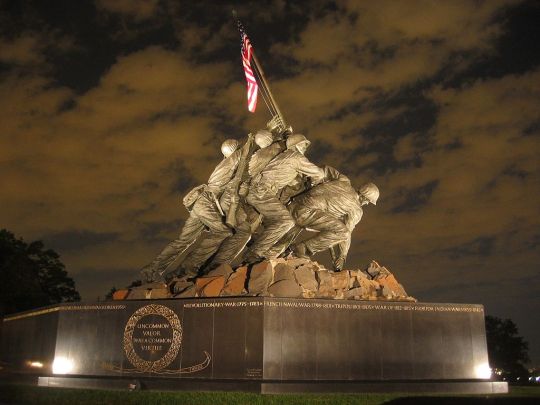
Happy Birthday United States Marine Corps!
On this day in 1775, the Continental Congress passes a resolution requiring that “two Battalions of Marines be raised” to support the recently organized Continental Navy. The resolution further stipulated that no person be enlisted, except “such as are good seamen, or so acquainted with maritime affairs as to be able to serve to advantage by sea, when required.”
The first commanding officer of the Marines was Samuel Nicholas. He began recruiting new members immediately, and he reportedly turned to a tavern owner named Robert Mullan for help. As the story goes, the two men set up shop in Mullan’s tavern, the Tun Tavern. Thus, the tavern is considered by many to be the birthplace of the Marine Corps.
The story continues here: https://www.taraross.com/post/tdih-usmc-birthday
#tdih#otd#this day in history#history#history blog#America#freedom#united states marines#usmc#us marine corps#sharethehistory
70 notes
·
View notes
Text
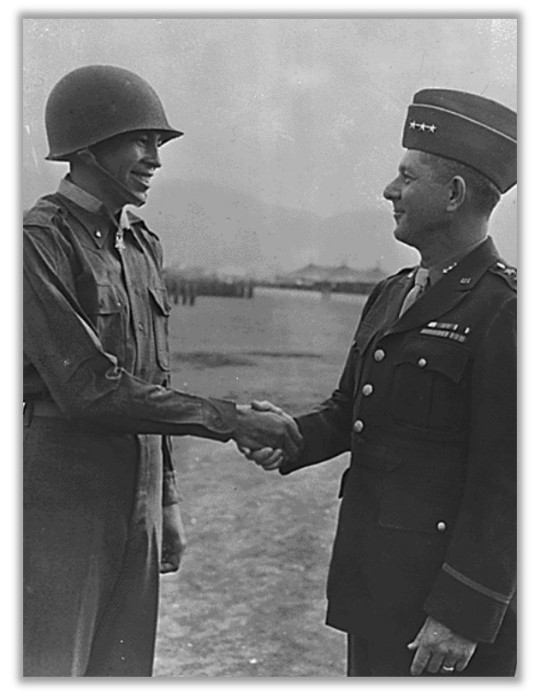
Medal of Honor Monday: Ernest Childers
On this day in 1944, a hero receives the Medal of Honor. Ernest Childers was a Muscogee (Creek) Indian and one of just five American Indians to receive a Medal during the 20th century.
In retrospect, much of his early life had prepared him for what was to come.
Odd as it might sound today, Childers got his first gun when he was just 8 years old. His father taught him to hunt with that gun. It was a skill that would get put to use when his father passed away just a few years later. Finances were so tight that Childers’s mother would give him just one .22-caliber cartridge a day. It was the young boy’s job to hunt a rabbit for dinner with that single bullet.
“I got to be a very good aim,” he later said. “Because if I missed, we didn’t eat.”
The story continues here: https://www.taraross.com/post/tdih-ernest-childers-moh
#tdih#otd#this day in history#history#history blog#America#freedom#world war ii#medal of honor monday#medal of honor#sharethehistory
24 notes
·
View notes
Text
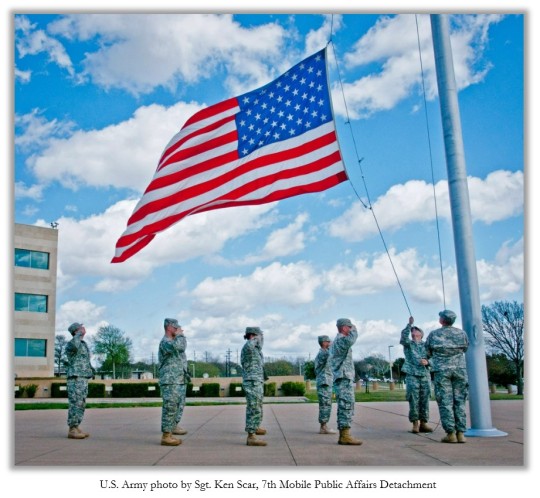
This Day in History: Origins of the Flag Code
On or around this day in 1942, the United States Congress considers amendments to the United States Flag Code. Did you know that the first Flag Code wasn’t written until 1923? Or do you know why it provides for us to stand and put our hands over our hearts? Or how the tradition of flying the flag at half-staff got started in the first place?
Believe it or not, the latter custom can be traced back to the 1600s.
The first recorded instance of a flag being flown at half-mast occurred in 1612. The story continues here: https://www.taraross.com/post/tdih-flag-code
#tdih#otd#this day in history#history#history blog#America#american flag#united states flag#us flag#sharethehistory
75 notes
·
View notes